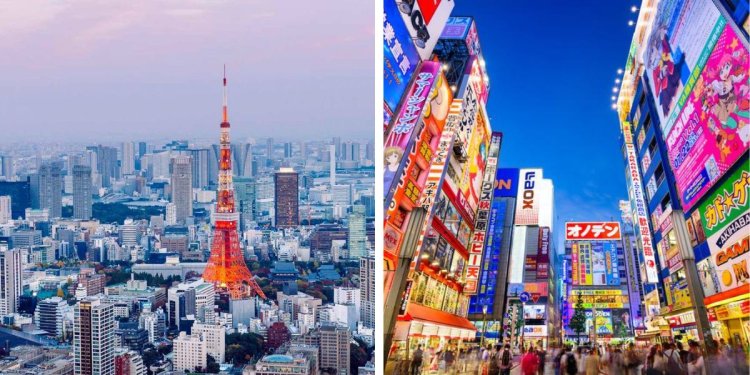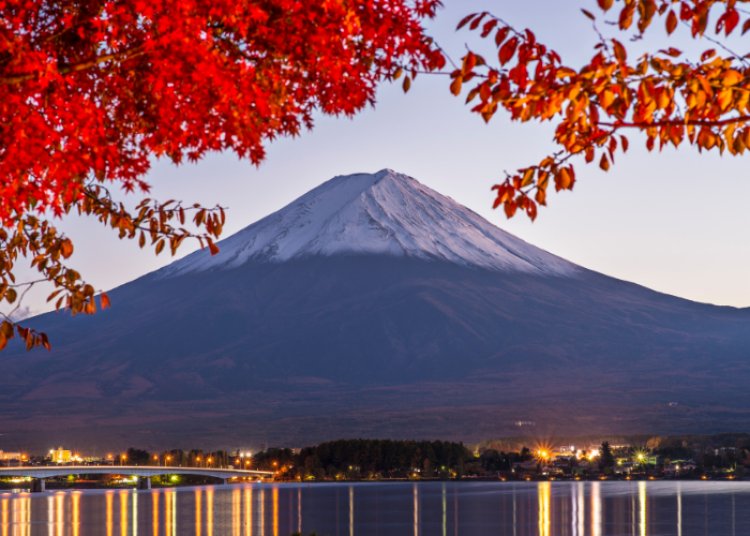23 Interesting Facts About Japan Kenyans Should Know
As of now, there are no direct flights between Nairobi and Tokyo...

The dream of direct flights between Nairobi and Tokyo, Japan could soon come true as the two countries announced that they had bagged a deal on the same.
National Assembly Speaker, Moses Wetangula, met Japan's Ambassador to Kenya Ken Okaniwa who paid him a visit to the former's office at the Parliament Buildings on Monday, November 14.
"We discussed a variety of topics, such as the manufacturing sector, climate change, waste management practices, and the Japan-Kenya technical skills and experience exchange program.
"The envoy, who has been serving in the nation since December 2021, stated that he is looking into the possibility of starting direct flights between Tokyo and Nairobi," Wetangula reported on the deal on Tuesday, November 15.

As of now, there are no direct flights between Nairobi and Tokyo, with Kenyans choosing to either connect through the Middle East to get to Tokyo, among other options. The quickest flight takes 17 hours and 55 minutes with stopovers at Addis Ababa and Seoul.
In the event the deal materialises, it could benefit both nations as Japan is one of the country's major trading partners.
Interesting Facts About Japan
- Japan is known to have the world’s highest life expectancy. In 2019, there were 2.31 million Japanese over the age of 90, with over 71,000 of them being over 100 years old.
- Japan is a country with a complex and ancient cultural heritage yet today it is one of the most advanced countries in technology and innovation since 1950.
- Streets in Japan are immaculate; even in Tokyo, the capital, and a massive megacity, all streets are spotless and litter-free. The Japanese very seldom leave trash on the streets. Additionally, volunteers of all ages clean the streets for the simple reason that they want to live in a tidy city.
- The greater Tokyo metropolitan area encompasses three areas and is home to Japan’s capital, Tokyo. Tokyo is estimated to have 38.14 million, rendering it the world’s most populous megacity.
- Due to stringent visa requirements and a cultural mindset keeping its distinctive and ancient culture steeped in old traditions, the country's population is 98.5 per cent Japanese.
- With 5 million vending machines- Japan has the highest density in the world, that is one vending machine for every 24 people. They stock everything ranging from batteries, ramen, sake, umbrellas and flowers, among others.
- Japan consists of 6,852 islands. The islands were originally attached to the eastern coast of Asia, until tectonic activity caused them to split off, creating the Sea of Japan around 15 million years ago.
- The Japanese language arranges words differently than we do in English. Instead of ordering sentences by subject-verb-object (example: I write words), Japanese uses subject-object-verb (example: I words write).
- The bow is an important form of greeting in Japan, and Japanese people work hard to perfect it. The depth of the bow is significant—lower bows indicate more respect.
- The kimono is a traditional Japanese garment worn by both men and women. It consists of a long robe-like dress that is wrapped around the body, with the left side always covering the right. The obi is the belt that keeps the kimono secure. A single kimono can cost over Ksh1.2 million.
- The world’s largest seafood market is the Tsukiji fish market in Tokyo. The market employs over 60,000 people and opens at 3:00 am most mornings, with its famous wholesale tuna auctions beginning at five.
- The oldest company in the world is located in Japan. Kongo Gumi is the oldest operating business in the world, established in 578 and specialises in the construction of temples and shrines.
- Over 80 per cent of Japan's land is mountainous. The terrain also includes over 100 active volcanoes making up roughly 10 per cent of all active volcanoes in the world — the landscape makes for excellent skiing and wandering.
- There are over 1,500 earthquakes in Japan each year. Japan is located on top of or adjacent to four distinct tectonic plates (The Pacific Ring of Fire). The Pacific, Eurasian, North American, and Filipino plates are the tectonic plates, making the country one of the world's most earthquake-prone nations. Most of these earthquakes are minor and unnoticeable, but large and destructive earthquakes do occur from time to time.
- 67 per cent of Japan is covered in forests. In comparison, Kenya's forest cover is 12.5 per cent.
- Just like Kenya's Mt Kenya, the tallest mountain in the country, Mt Fuji in Japan is the country's tallest and considered a sacred site for the Shinto religion since the seventh century. Princess Konohanasakuya is the Kami (divine person) of Mount Fuji in the Shinto religion. The cherry blossom is her symbol.
- The Japanese diet is widely regarded as one of the healthiest diets in the world. The diet consists of traditional food items such as rice, fish, and vegetables.
- Japan is the world’s only country with an Emperor who however wields little power and primarily serves as a symbolic figure, despite remaining an integral part of Japanese tradition. Naruhito is the current Emperor of Japan. He ascended to the throne on May 1, 2019, following his father, Emperor Akihito’s abdication on April 30, 2019.
- Animated Japanese films and television shows (Anime) account for 60 per cent of the world’s animation-based entertainment.
- Japan has one of the lowest firearm-related death rates in the world. They say you could leave your wallet on the floor of the busiest metro station and come back an hour later to still find it there, untouched.
- Japanese trains are among the world’s most punctual: their average delay is just 18 seconds! The country also has a train that “floats” above the tracks by magnetism, reaching 550km/h (311 mph).
- In Japan, there are more pets than children.
- It’s considered inappropriate to blow your nose in public.

Mt Fuji in Japan. /FILE

 admin
admin 




